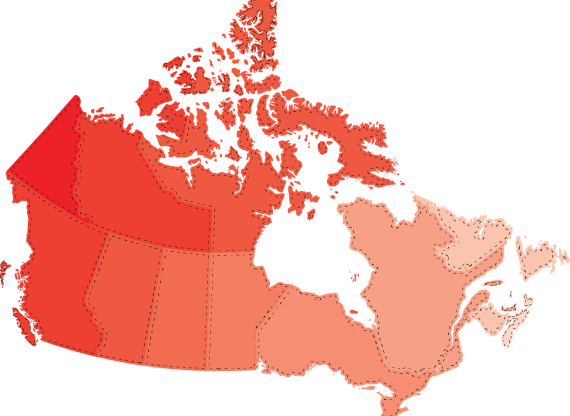Interprovincial trade: Alberta in first place, Quebec in last

Montreal, November 14, 2019 – While Canada continues to negotiate free trade agreements with numerous countries, the provinces maintain obstacles to trade within our own borders. The MEI and the Canadian Constitution Foundation (CCF) have listed them from best to worst in a ranking of Canadian provinces and territories by their openness to internal trade, launched today.
Statistics Canada estimates that the multitude of trade barriers within the country equate to a 6.9% tariff selling between provinces. Some economists calculated that abolishing these barriers could add from $50 billion to $130 billion to Canada’s overall GDP. This represents between $3,500 and $9,200 per Canadian household every year.
“Trade barriers between the provinces are very difficult to justify in their own right. It’s even more striking when you tack on their very significant economic cost,” says Mark Milke, Senior Fellow at the MEI and author of the ranking.
The Internal Trade Provincial Leadership Index developed by Dr. Milke ranks the provinces and territories according to the number of barriers to trade they have, as measured by exceptions to the Canadian Free Trade Agreement (CFTA). Alberta, which has the fewest, tops the list, while Quebec is in last place.
“Alberta recently decided to unilaterally eliminate most of its exceptions to the CFTA, which is a big part of why it’s in first place. It is an example to follow for the other provinces,” says Mark Milke.
British Columbia and Manitoba are tied for second place after the latter also eliminated some of its exceptions, while Saskatchewan takes fourth place. Bringing up the rear with the most exceptions are New Brunswick, Yukon, and Quebec.
“Several possible solutions exist: continuing to negotiate to remove exceptions, making increased use of the ‘passport’ system, or simply acting unilaterally, as Alberta and Manitoba have done,” says Dr. Milke. He concludes, “It’s not a zero-sum game: Every barrier eliminated benefits the country as a whole, including the province that has eliminated it.”
The MEI and the Canadian Constitution Foundation have joined forces under the “One Country, One Market” banner to defend free trade for all Canadians from coast to coast.
The ranking entitled Internal Trade Provincial Leadership Index was prepared by Mark Milke, independent policy analyst, with the collaboration of Peter St. Onge, Senior Economist at the MEI. This publication is available on our website.
* * *
The MEI is an independent public policy think tank. Through its publications and media appearances, the MEI stimulates debate on public policies in Quebec and across Canada by proposing reforms based on market principles and entrepreneurship.
The Canadian Constitution Foundation (CCF) is a registered charity, independent and non-partisan that defends the constitutional rights and freedoms of Canadians in the courts of law and public opinion.
-30-
Interview requests: Daniel Dufort, Director of External Affairs, MEI. Tel.: 514-273-0969 ext. 2224 / Cell: 438-886-9119 / Email: ddufort@iedm.org

